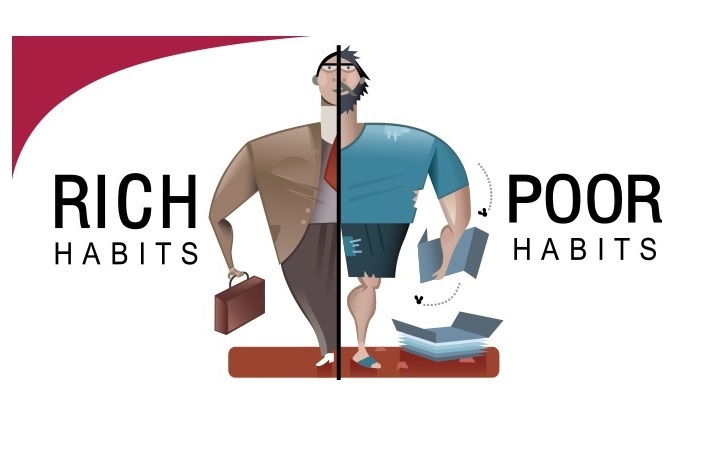In recent years, mindfulness has taken the world by storm, with meditation apps, wellness retreats, and countless self-help books promoting its benefits. However, as mindfulness continues to gain mainstream popularity, a growing number of critics are challenging its effectiveness, origins, and potential drawbacks. While mindfulness might seem like the perfect solution to modern stress and anxiety, it’s not without its controversies.
Here’s a closer look at why mindfulness might not be everything it’s cracked up to be.
Mindfulness Isn’t a Cure-All for Mental Health Issues
At its core, mindfulness is a practice that encourages being present in the moment and accepting your thoughts without judgment. While this sounds appealing, the idea that mindfulness can solve all mental health struggles is misleading. Many proponents claim that mindfulness can reduce anxiety, depression, and even PTSD, but the reality is much more complex.
For some people, mindfulness practices can help ease stress, but for others, it may exacerbate their issues. For those struggling with trauma or severe mental health conditions, mindfulness can sometimes lead to an increase in negative emotions and feelings of discomfort, especially when these emotions are brought to the surface in an attempt to “accept” them.
There’s also concern that mindfulness can oversimplify mental health struggles, leading individuals to feel as though they’re “failing” if the practice doesn’t result in immediate relief. This can ultimately reinforce the idea that people should be able to solve their own mental health problems without professional help.
The Cultural Appropriation of Mindfulness
Mindfulness, as we know it today, has roots in ancient Buddhist practices, where meditation and mindfulness were integral to the path toward enlightenment. However, the way mindfulness is often marketed and practiced in the West can be seen as a form of cultural appropriation. The commercialization of mindfulness has stripped away much of its original spiritual and ethical context, turning it into a lucrative industry.
Many mindfulness advocates don’t acknowledge the deep cultural and religious significance mindfulness once had, which can feel disrespectful to those who see it as a sacred practice. Additionally, the way mindfulness is presented as a self-improvement tool in a secular context might undermine its deeper philosophical aspects.
For some, the focus on individual success and personal well-being, without regard for the collective or the historical context, highlights the dangers of appropriating cultural practices for profit.
Mindfulness Doesn’t Address Systemic Issues
Mindfulness is often marketed as a personal solution to societal problems, but it doesn’t address the root causes of many of the issues people face today, such as systemic inequality, poverty, or racism. By focusing on individual responsibility for well-being, mindfulness can inadvertently ignore the larger societal and political factors that contribute to stress, anxiety, and dissatisfaction.
For example, mindfulness may help a person manage their immediate stress, but it won’t change the fact that they might be working in a toxic work environment or facing financial struggles due to systemic inequality. Focusing solely on mindfulness can detract from the need for social change and policy reforms to address these larger issues.

The Corporate Co-Opting of Mindfulness
Another controversy surrounding mindfulness is its increasing use in the corporate world. Mindfulness programs in workplaces are often touted as a solution for burnout, stress, and productivity issues. While offering mindfulness practices in the workplace can provide short-term relief, it may also be seen as a way for employers to avoid taking responsibility for creating a healthy work environment.
Corporate mindfulness programs can sometimes serve to pacify employees without addressing the root causes of workplace stress—like poor management practices, lack of work-life balance, or unrealistic expectations. Instead of changing the workplace culture, these programs may simply make employees more resilient to unhealthy conditions without addressing the underlying problems.
Critics argue that this corporate co-opting of mindfulness essentially turns a practice meant for personal well-being into a tool for corporate profit, benefiting the company while doing little to improve the lives of workers in the long run.
Mindfulness and the Pressure to “Be Present”
One of the most common criticisms of mindfulness is the pressure it places on people to “be present” all the time. While mindfulness encourages being in the moment, some argue that this can inadvertently lead to feelings of guilt when people can’t maintain that level of awareness. There’s an expectation that mindfulness should be practiced constantly, even during mundane or difficult moments, which can create an unrealistic standard.
For those who already feel overwhelmed, the constant push to be present can feel like yet another obligation, adding to their stress rather than alleviating it. In some cases, it can become yet another form of self-criticism when mindfulness isn’t successfully integrated into daily life.
The Commercialization of Mindfulness
As mindfulness has become a mainstream trend, it’s also become a highly profitable industry. From apps like Calm and Headspace to wellness retreats and books, the commercialization of mindfulness has sparked debate. While there’s nothing inherently wrong with companies profiting from mindfulness practices, critics argue that this undermines the true purpose of mindfulness, which is about cultivating awareness, acceptance, and presence—not about selling products and services.
The commercialization of mindfulness may contribute to the perception that it’s just another quick fix or product that can be bought rather than a deeper practice that requires effort and time to master.
Mindfulness Doesn’t Solve the Root Cause of Your Problems
Lastly, while mindfulness can certainly help with stress management and cultivating awareness, it doesn’t address the root cause of your problems. Mindfulness encourages you to accept things as they are, but acceptance isn’t always enough. If you’re struggling with financial instability, relationship issues, or career dissatisfaction, mindfulness can’t necessarily solve these problems by itself.
Rather than treating mindfulness as a fix-all, it should be viewed as one tool in a broader toolkit for well-being. It’s essential to also take concrete steps to address the underlying issues that are contributing to your stress.
So, is mindfulness worth it?
Mindfulness can certainly offer benefits for mental well-being, but it’s not a one-size-fits-all solution. It’s important to approach mindfulness with a critical eye, understanding its limitations, and recognizing when it might be masking deeper issues.
Have you tried mindfulness? Do you think it’s truly effective, or do you see it as just another trend?
Read More:
Do Mental Health Days Really Help—Or Just Postpone the Breakdown?
How to Boost Your Mental Well-Being Without Breaking the Bank



























